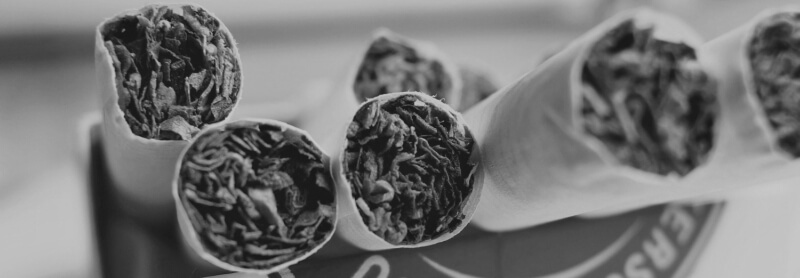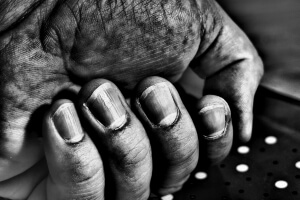For a gland the size of a golf ball, the prostate sure does cause a lot of trouble, and treatment can be all-consuming. That’s why this website has so much “prostate-forward” content. But guess what? There are other body parts you have to think about proactively, too! Don’t forget about the rest of your body!
This means you still need to think about screening for other cancers, such as colon cancer and skin cancer. You still need regular checks for blood cholesterol, liver function, kidney function, and diabetes – the lab tests doctors usually order at a routine yearly physical. You need someone to listen to your heart and check your blood pressure. If, like many men, you don’t have a family doctor or internist, but only go to the urologist, make sure your urologist is aware of this, and be sure to raise any health concerns at your office visit.
Be Good to Your Heart
Right up there at the top of your health goals should be cardiovascular wellness. Here’s one big reason why: “If you have localized prostate cancer and are treated successfully for it, your biggest risk of dying is of a heart attack,” says Edward “Ted” Schaeffer, M.D., Ph.D., chairman of urology at Northwestern University. He made this point in our book.
“Even if you don’t have prostate cancer, heart disease remains the number one cause of death in men,” he continues. “If you have advanced prostate cancer and are on androgen deprivation therapy (ADT), your risk of a heart attack goes up. Thus, focus on being heart-healthy!”
What’s good for your heart? It’s pretty straightforward: Eat a diet rich in fruits and vegetables and low in processed foods, fried foods, and sugar.
Now, what does this actually mean? I’m not going to tell you never to have cookies, cake, burgers, hot dogs, pizzas, etc. Just don’t make that the vast majority of what you eat. Think of an old-fashioned scale, like the scales of justice. On one side is all the stuff you do eat, whatever it is. On the other side is what you don’t eat. It’s not eating vegetables and fruits. Not getting enough protein — your sins of omission are every bit as bad, maybe worse, than any sins of commission (eating a cinnamon roll as big as your head). You need a lot more protein than you may think: about 30 grams PER MEAL. For a 185-pound man, that’s at least 90 grams a day. There is no shame to protein shakes! It’s a great way to get a big honking dose of protein. Other sources: nuts (6 grams in an ounce of almonds), eggs (a boiled egg has 6.3 grams), a meat bar such as Epic makes (7 grams in one bar), a Kind bar (7 grams in a peanut butter/dark chocolate bar).
Back to our scale: whatever goes into the one side should be balanced by the other. If you eat a slice of pizza, have a salad or a vegetable side. If you have a scoop of ice cream, make it healthier by putting raspberries or blueberries on top. Try not to eat a lot of processed meats – but if you do eat a hotdog, or chicken apple sausage, or salami, or pepperoni, try to get the healthier kind without additives. And know this:
The vast majority of processed food is not good for you. It’s just convenient. Even prepackaged food that is marketed as “healthy” actually is often full of junk!
Take, for example, the 25-ingredient veggie burger, which contains few vegetables and is packed with additives. What the heck is carrageenan, anyway? (It’s in a lot of prepared foods, and it is not good for you!) I just interviewed Weill-Cornell medical oncologist David Nanus, M.D., who is Principal Investigator of a study looking at a whole-foods, plant-based diet for men on ADT. I will report on this soon; the initial findings are exciting and hopeful. Nanus offers this advice for anyone trying to eat a healthy diet: “If it’s got more than five ingredients, don’t eat it.”
Or consider the chicken-teriyaki meatballs with 750 mg of sodium in one serving – and one serving is four small meatballs! Let’s not even get started on fast food and chain restaurants, which make money by offering high-calorie, high-sodium and high-sugar food that pleases the palate but adds to the waistline. The stakes (and steaks!) are high.
If you drink alcohol, do it in moderation – although again, many studies show health benefits to red wine. Aim for some moderate exercise every day. It doesn’t have to be a heroic effort; just do something. Anything is better than just sitting around looking at a screen.
Testosterone and Your Overall Health
Note: If you have advanced or high/risk prostate cancer and you need ADT, then do it. “That’s the most important issue right now,” says Schaeffer, “keeping the cancer under control.”
But for men who are not on ADT, men who don’t have prostate cancer or men who have been treated successfully for localized prostate cancer are in a different situation. They do need testosterone for good health. “Male hormones play a big role in keeping your body healthy,” says Schaeffer. “Ideally, men should have testosterone levels that are in the normal range.”
This can be a tough concept to grasp, says Johns Hopkins neuro-urologist Arthur Burnett, M.D. “Ever since (Nobel prize-winning scientist) Charles Huggins made the observation 70 years ago that in advanced prostate cancer, if you shut down the male hormones, that will cause a regression of the disease, there’s been widespread notion that if you have prostate cancer, you need to get the testosterone down. The reality is, if you are cancer-free, if you have low testosterone, you should get to a normal testosterone level.” Even in men who have not been treated with ADT, testosterone can be low for other reasons, including age, obesity, and certain chronic medical conditions.
Burnett, with investigators at Harvard, is conducting a trial of supplemental testosterone in men after prostatectomy. The hypothesis is that restoring low testosterone to the normal range “is safe and efficacious, that it can improve cognitive function and some physical limitations that some men have when their testosterone is low, and that there might be some sexual benefit from getting testosterone back into the normal range. For men who have radical prostatectomy or radiation therapy for localized disease who happen to be testosterone-deficient, rather than condemn them for the rest of their lives to having too little testosterone, how do you help them achieve maximal health?”
The key is to keep testosterone in the normal range of between 300 and 800 ng/dL, says Schaeffer. Among other things, “very low testosterone levels can raise the risk of a heart attack or stroke, decrease muscle mass, weaken bones, impair cognitive function, increase the risk of metabolic disease, frailty and depression.” If you are experiencing symptoms such as fatigue or low sex drive, speak to your urologist or primary care physician.
“Sexual Health is a Barometer”
Both surgery and radiation therapy for localized prostate cancer can cause temporary or longer-lasting difficulties with erectile function. But other medical conditions can cause erectile dysfunction (ED), too. Burnett, a pioneer in the field of men’s sexual health – whose scientific discoveries about the role of nitric oxide in erection led to development of the drug Viagra – has written about this in detail in his book, The Manhood Rx: Every Man’s Guide to Improving Sexual Health and Overall Wellness.
For example: “Heart disease and ED, the two entities are linked,” he says. We have previously discussed that here. “Erection is a matter of vascular function in the genitalia. Heart disease affects more than the heart – the entire cardiovascular system. It can cause cerebral vascular disease, peripheral vascular disease, and penile vascular disease. Erection is all about blood flow and how it’s regulated.” In fact, “ED is a marker, not only for heart disease, but for diabetes, metabolic syndrome, some autoimmune diseases, and systemic inflammation (diseases including gout, inflammatory bowel disease, gastritis, and prostatitis).” Being overweight can affect erectile function, as well; basically, fat cells raise estrogen levels, and reduce testosterone.
There are many ways to treat ED, including drugs such as Viagra and Cialis, penile injections, and surgery to implant a penile prosthesis. “Sexual health after prostate cancer requires a multifaceted approach that begins with the patient,” says Burnett. “Healthy living, preserving your best health after prostate cancer – eating a balanced diet, exercising, avoiding smoking and moderating your alcohol intake – can help maximize blood flow to the penis. You won’t get your 25-year-old penis back, but it may help preserve the function you have. And more proactively, talk to your urologist. Seek out interventions. If you don’t respond to a PDE5 inhibitor (Viagra or similar ED drug), there are nonsurgical interventions, including pumps or penile injection, and surgical intervention, implantation of a penile prosthesis. Don’t give up!” Seriously. Look through this website. There is a lot about ED, including the inspiring story of Serge Thomas. There is always hope.
In addition to the book, I have written about prostate cancer on the Prostate Cancer Foundation’s website, pcf.org. The stories I’ve written are under the categories, “Understanding Prostate Cancer,” and “For Patients.” I firmly believe that knowledge is power. Saving your life may start with you going to the doctor and knowing the right questions to ask. I hope all men will put prostate cancer on their radar. Get a baseline PSA blood test in your early 40s, and if you are of African descent, or if cancer and/or prostate cancer runs in your family, you need to be screened regularly for the disease. Many doctors don’t do this, so it’s up to you to ask for it.
©Janet Farrar Worthington

 A broken heart.
A broken heart. Cold Weather.
Cold Weather. Eating a huge meal.
Eating a huge meal.  ED and Low T: Don’t Just Treat the Symptoms!
ED and Low T: Don’t Just Treat the Symptoms!